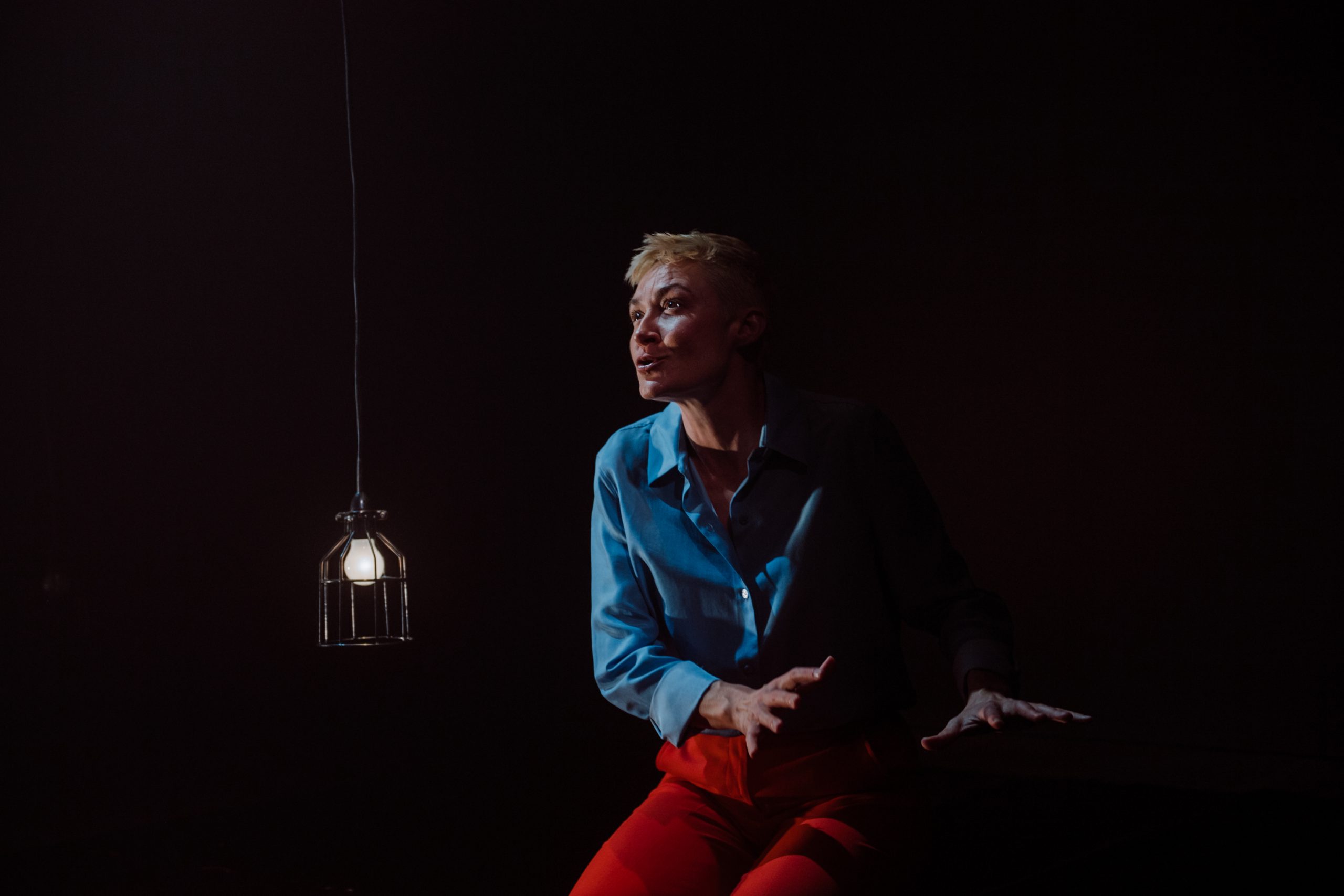By Noëlle Janaczewska. Siren Theatre Company, The Loading Dock, Qtopia, Sydney. July 10 – 27, 2024
Reviewed : 13 July, 2024

The Past is a Wild Party is the final work of a trilogy in which award-winning writer, poet and academic Noëlle Janaczewska shares her varied research and personal experiences in a “performance essay” – a term which doesn’t really mean anything until you see the work of Janaczewska on the stage, especially when it’s directed by someone as intuitive as Kate Gaul.
In Good With Maps Janaczewska used memories of poring over her father’s maps to describe evocative travel dreams of “being elsewhere”. In The End of Winter it was her fear of climate change taking away crisp winter days and cosy firesides. The Past is a Wild Party is slightly different. Here she uses the almost hidden references in early queer feminist literature to relive her own memories of “passionate friendships”, those that were fleeting, those that lasted longer, and those that return as faded photographs and fond messages in letters received years later.

Snippets of research form the basis of her ‘essay”: the evocative words of the archaic Greek poet Sappho; the writings of nineteenth century English poet and novelist Amy Levy … and the Radclyffe Hall’s more explicit novel, The Well of Loneliness. First published in 1928, and banned in the UK, the USA and Australia for many years, “The Well” has become known as “the classic of queer literature”.
Few writers can share such wide research, learned reflection and wistful memories in words that are so clear, so poignantly poetic … and so performable. In the right hands, they can reach across generation – and gender – to entertain and enlighten.
Siren Theatre found those right hands in Kate Gaul and performer Jules Billington. With lighting designer Benjamin Brockman and composer Madeleine Picard they breathe life into Janaczewska’s words. They understand the theatricality of her writing. The changes in flow and cadence; the different rhythms, timing, pauses; the hesitations and the humour that give the words depth, complexity, and relevance.
Gaul sets the performance on a stage bare of props. The walls are black, the floor a shiny blue. Over twenty lamps, suspended at different heights augment Brockman’s carefully designed lighting. Billington, dressed casually in pink and blue, moves lithely in the space, her only prop a red covered copy of Amy Levy’s poetry – a symbol and enduring tribute to those brave “wild parties” of the past.

Gaul directs in harmony with the changes of rhythm, so that words and movement come together fluidly, heightened at times by Picard’s subtle, empathetic notes. She moves Billington carefully in the space, giving her time to stop and breathe, time to relate personally with the audience in wry smiles, short, silent, understanding eye contacts and still, shared moments of introspection. Time to let them take in Janaczewska’s quiet messages.
There is no confrontation, no edifying, no instruction in those messages. There is gentleness, thoughtfulness, illumination. Through Billington’s skilful interpretation and Gaul’s sensitive direction, Janaczewska does what Sappho predicted might happen so many years ago …
“Someone, I tell you, in another time will remember us.” (Sweetbitter Love – Sappho c630-570BC)